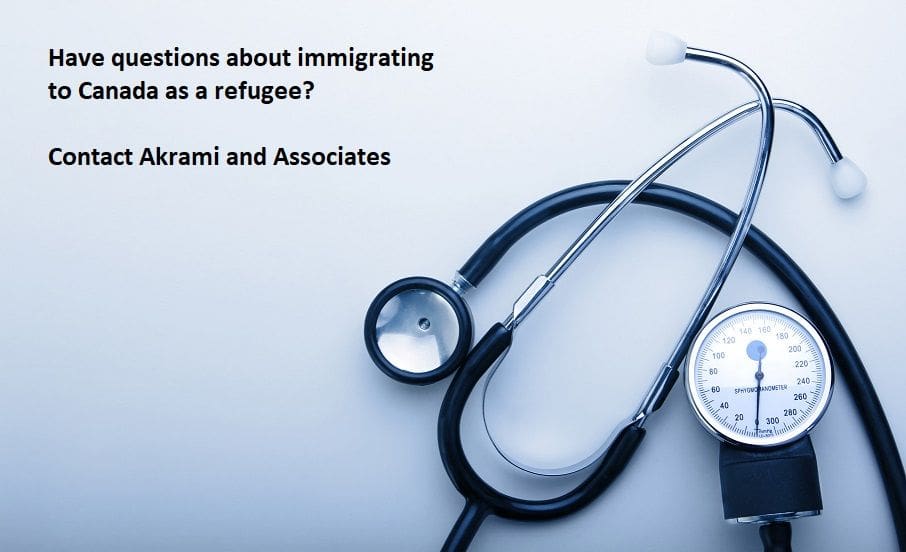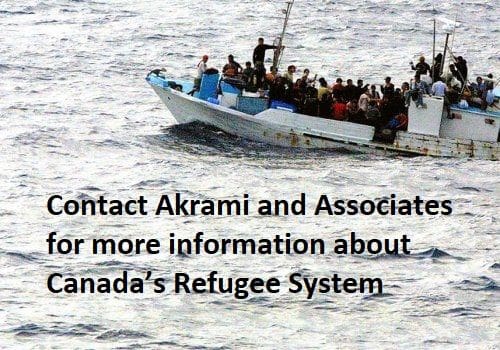Refugee Status
What do you do if you are refused?
If you are refused you can stay in Canada while you apply for an appeal. When you apply for your appeal you will need to also make submissions for a Pre Removal Risk Assessment.
While you are doing the above, it may also be an idea for you to make an application for Permanent Residence in Canada which would be based upon humanitarian and compassionate grounds.
How does the appeal process work?
If you have a refugee claim that was refused, then you may want to appeal that decision. There are grounds that you can’t appeal to the Refugee Appeal Division and that would be for the following:
- you are from a Designated Country of Origin
- you are a Designated Foreign National
- your claim was referred as an exception to the Safe Third Country Agreement
- the RPD decided that your claim is manifestly unfounded
- the RPD decided that your claim has no credible basis
- your claim was withdrawn or declared abandoned
- your claim was referred to the IRB before the coming into force of the new refugee protection provisionsThere are also a few other reasons as to why you would be unable to appeal your decision to the Refugee Appeal Division and they are:
- a decision from a rehearing of a claim that was referred to the IRB before the coming into force of the new refugee protection provisions
- a decision on a Minister’s application to vacate refugee protection or on a Minister’s application for cessation of refugee protection
- the deemed rejection of a claim because of an order of surrender under the Extradition Act
- a decision on a pre-removal risk assessment
How do you respond to an appeal?
If you have been allowed refugee protection by the Refugee Protection Division and the Minister is trying to appeal that decision, then you have the right to respond to that appeal as well as file any documents.
You don’t have to respond to the appeal. If you choose not to, the Refugee Appeal Division will then decide the Minister’s appeal based on the documents the Minister has as well as the Refugee Protection Divisions records.
How do you ensure that someone will review your response to the appeal?
There are a few things that you will need to fill out and complete in order to make sure that someone is going to look over the response of your appeal. The things that will be required of you to do are:
- submit a “Notice of Intent to Respond”;
- prepare your respondent’s record;
- provide a copy of your notice of intent to respond and your respondent’s record to the Minister and then to the RAD no later than 15 days after the day on which you receive a supporting document from the Minister;
- give the RAD proof that you provided the notice of intent to respond and the respondent’s record to the Minister;
- make sure that all of the documents you provide are in the right format and complete; and
- provide all of your documents on timeIf these certain things are not completed then the Refugee Appeal Division may not look at your response.
Please allow our representatives to assist you with any of this in any way that we are able. We have plenty of experience and education in immigration issues and we are more than willing to work hard for you so you don’t have to worry about this process.
Latest Immigrations News

January 24, 2019
Health and Dental care for refugees in Canada
Immigrating to Canada as a refugee In Canada, Interim Federal Health Program also known as IFHP, is usually paid for the essential health care of refugee applicants, directed by Immigration, Refugees and Citizenship Canada (IRCC). Once the certificate of eligibility is issued by an IRCC or Canada Border [...]

November 5, 2018
Canada’s Refugee System
What are Refugees Are you or someone you know living in fear of persecution or danger of death in their home country? Are you seeking somewhere safer to live with your family? Canada offers those who are experiencing danger in their home countries a safe place to live [...]

November 1, 2018
Canada Biometrics Updates
Biometrics for Immigration As you may know, a big part of Canadian immigration applications is the biometrics. Biometrics uniquely identify a person’s anatomical or physiological data. At your biometrics appointment, you will get your fingerprints and photos, taken, and you will sign your name for electronic capture. Biometrics [...]

Book a Conslutation
One of our Representatives will
assist you with your matter. Book Now!
Click here

Call us for
more Information
+1-416-477-2545
Toll Free: 1-877-820-7121
Click here

Write Us (Online Form)
Complete our form and one of our
Representatives will contact you.
Click here
Subscribe To Our Newsletter


